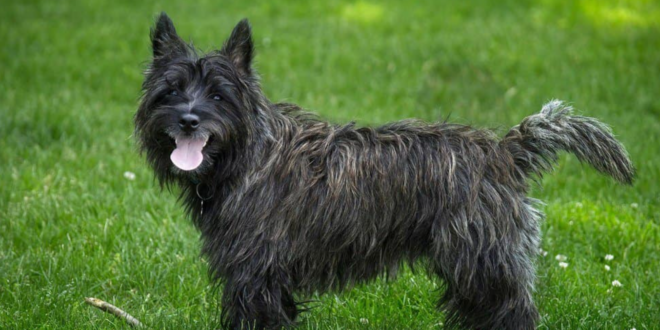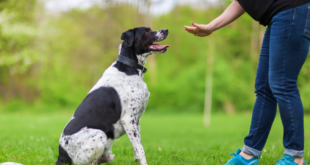Liver Shunt In Dogs Diet – The liver is one of the most important organs in a dog’s body, responsible for filtering toxins, producing bile, and regulating metabolism. However, some dogs may develop a liver shunt, a condition where blood bypasses the liver and toxins build up in the bloodstream. While surgery is often necessary to correct the condition, a carefully managed diet can also play a crucial role in supporting liver function and improving the quality of life for dogs with liver shunts. In this article, we will explore the key dietary considerations for dogs with liver shunts and provide practical tips on how to ensure your furry friend receives the nourishment they need to thrive.
Table of Contents
1. Understanding your Dog’s Liver Shunt: The Role of Diet
When it comes to managing your dog’s liver shunt, diet plays a crucial role. Since the liver is responsible for filtering toxins and waste from the body, it’s important to choose foods that won’t place an excessive burden on this already struggling organ.
Here are a few tips to keep in mind:
- Focus on high-quality protein: Protein is essential for maintaining muscle mass and supporting the liver’s detoxification processes. Look for lean sources of protein such as chicken, turkey, and fish, and avoid high-fat cuts of meat.
- Avoid high-carbohydrate foods: Carbohydrates can be difficult for a compromised liver to process, so limit your dog’s intake of grains, potatoes, and other starchy foods. Instead, consider adding small amounts of low-glycemic fruits and vegetables to their diet.
- Incorporate supplements: Certain supplements, such as milk thistle and SAM-e, may help support liver function. Talk to your vet about whether supplements are appropriate for your dog.
Remember, every dog’s nutritional needs are different. Work with your vet to develop a customized diet plan that meets your dog’s unique needs and helps them thrive despite their liver shunt.
2. Essential Nutrients for Dogs with Liver Shunt: A Guide to a Balanced Diet
In order to properly manage liver shunt in dogs, it’s essential to provide them with a balanced diet. This typically means feeding them a high-quality, nutritious diet that’s rich in a variety of essential nutrients. Below is a guide to some of the most important nutrients your dog with liver shunt needs:
– Protein: Dogs with liver shunt need protein in order to maintain their lean muscle mass. Good sources of protein include chicken, turkey, fish, and eggs.
– Vitamins: Vitamins are essential for a healthy immune system and overall well-being. Be sure to include plenty of vitamins A, B, and C in your dog’s diet. These can be found in foods like carrots, sweet potatoes, spinach, bananas, and citrus fruits.
– Minerals: Like vitamins, minerals play an important role in maintaining a healthy body. Some of the key minerals to include in your dog’s diet include calcium, potassium, and iron. Good sources of these minerals include dairy products, leafy greens, and meat.
When it comes to feeding a dog with liver shunt, it’s also important to avoid foods that are high in fat and sodium. These can put extra strain on your dog’s liver and exacerbate their condition. Instead, focus on providing your dog with plenty of fresh fruits and vegetables, lean meats, and whole grains. With the right diet and careful management, many dogs with liver shunt are able to live long, healthy lives.
3. Foods to Avoid and Foods to Embrace to Help Your Dog with Liver Shunt
When it comes to taking care of a dog with liver shunt, certain foods should be avoided while others should be embraced. By avoiding certain foods, you can help prevent further damage to your furry friend’s liver. By feeding them the right foods, you can help support their liver health. Here are some of the foods to avoid and embrace:
- Avoid high-protein diets: Dogs with liver shunt have difficulty metabolizing protein. Therefore, it is important to avoid feeding them high-protein diets.
- Avoid processed foods: Processed foods contain additives that can be harmful to your dog’s liver.
- Avoid fatty foods: Your dog’s liver may have difficulty metabolizing fat, so it is important to avoid fatty foods. This includes table scraps, fast food, and fatty meats.
- Embrace low-protein diets: Your dog still needs protein in their diet, but it is important to feed them a low-protein diet. Look for specially formulated dog food that is designed for dogs with liver shunts.
- Embrace fresh fruits and vegetables: Fresh fruits and vegetables are an excellent source of vitamins and minerals that can help support your dog’s liver health.
- Embrace lean proteins: If you choose to give your dog meat, opt for lean proteins such as chicken, turkey, and fish.
Feeding your dog with liver shunt can be a challenge, but by avoiding certain foods and embracing others, you can help support your dog’s liver health. Remember to always consult with your veterinarian before making any changes to your dog’s diet.
4. 5 Easy-to-Make Homemade Dog Food Recipes for Dogs with Liver Shunt
Liver shunt in dogs can be a serious medical condition. Proper diet and nutrition are necessary to keep your furry friend healthy. Homemade dog food is a great way to ensure that your dog is getting a balanced and nutritious diet.
Here are five easy-to-make homemade dog food recipes for dogs with liver shunt:
-
- Cottage Cheese and Veggie Delight
This recipe is perfect for dogs with liver shunts. It’s packed with protein and essential nutrients. You will need: low-fat cottage cheese, sweet potato, broccoli, and green beans. Cook the sweet potato, broccoli, and green beans and mix them with low-fat cottage cheese. Serve this nutritious and irresistible meal to your furry friend and watch them gobble it up!
-
- Chicken and Rice Delight
This recipe is easy to make and is a great source of protein and essential vitamins and minerals. You will need: chicken breast, brown rice, carrots, and green beans. Cook the chicken breast, brown rice, and vegetables. Mix them together and serve.
-
- Beef Stew for Dogs
This is another great recipe for dogs with liver shunts. Beef is a great source of protein. You will need: beef, sweet potato, carrots, peas, and brown rice. Cook the beef, sweet potato, and vegetables. Mix them together with cooked brown rice and serve this delicious meal to your furry friend.
These five easy-to-make homemade dog food recipes are perfect for dogs with liver shunts. They are all full of essential nutrients and are easy to make. Give these recipes a try and watch your furry friend thrive!
5. A Complete Guide to Supplements for Dogs with Liver Shunt: What Works and What Doesn’t?
When it comes to liver shunt in dogs, it’s essential to understand that dietary changes and supplements can play a significant role in managing the condition. Keep in mind that not all supplements are created equal, and not all will be effective in treating liver shunts in dogs. Here are some supplements that work and some that don’t.
Supplements that work:
1. Milk Thistle: Milk thistle is an herbal supplement that has been proven to support liver function and prevent liver damage. It contains silymarin, a potent antioxidant that helps to protect and repair liver cells.
2. SAMe: SAMe is a supplement that can help to improve liver function and reduce inflammation in dogs with liver shunts. It is also beneficial in supporting the immune system and reducing oxidative stress.
Supplements that don’t work:
1. Vitamin E: While vitamin E is essential for overall health, it has not been proven to be effective in treating liver shunts in dogs. In fact, too much vitamin E can even be harmful to dogs with liver shunts.
2. Iron: Iron supplements should be avoided in dogs with liver shunts, as they can cause liver damage and exacerbate the condition’s symptoms.
Overall, it’s vital to speak with a veterinarian before giving your dog any supplements, especially if they have liver shunts. Not all supplements are safe or effective, and your veterinarian can help you determine which ones will work best for your dog’s specific needs.
An effective diet for dogs with liver shunt includes all the necessary ingredients for good health, as well as a closely monitored sunshiny attitude. With the correct diet and medical management, many of our canine companions can enjoy a bright and active life for years to come. If you believe your dog may need help from a liver shunt, thoroughly consult a veterinarian. They can provide the best advice for a healthy diet and lifestyle for your beloved pup.
 Treat For Dog – Brain Training for Dogs, Dog Training & Obedience Discover Treat For Dog and get your pup on the path to smarter, happier, and healthier living with brain training for dogs.
Treat For Dog – Brain Training for Dogs, Dog Training & Obedience Discover Treat For Dog and get your pup on the path to smarter, happier, and healthier living with brain training for dogs.




